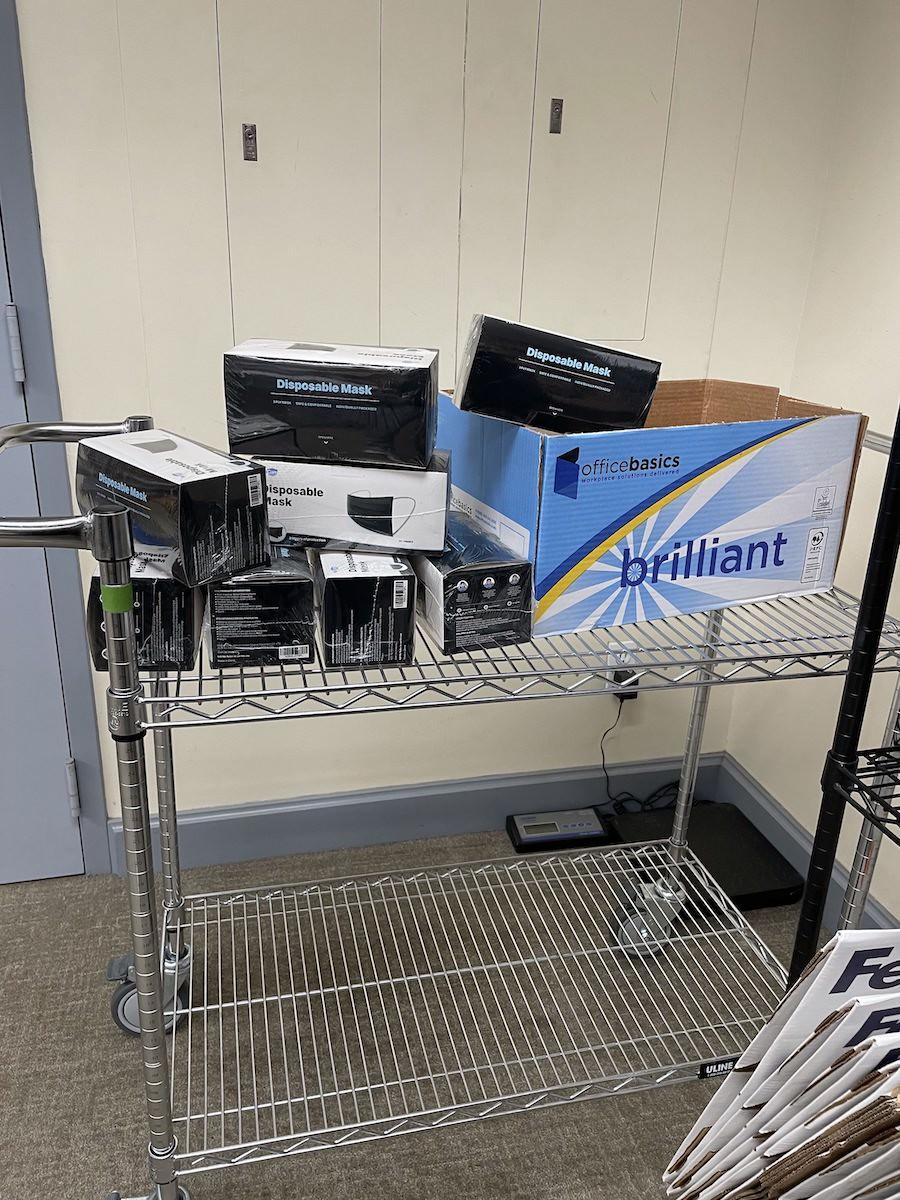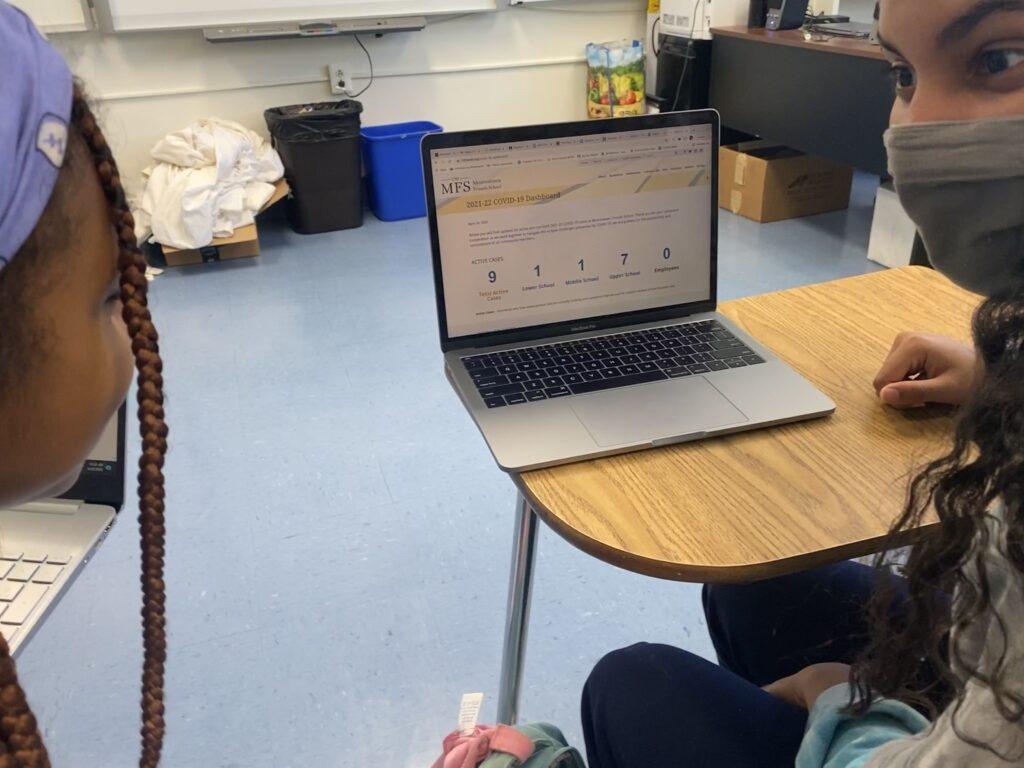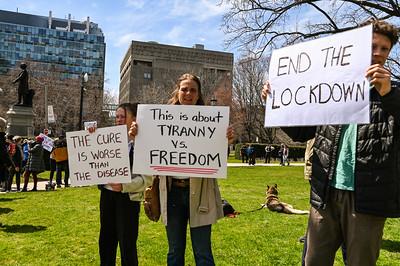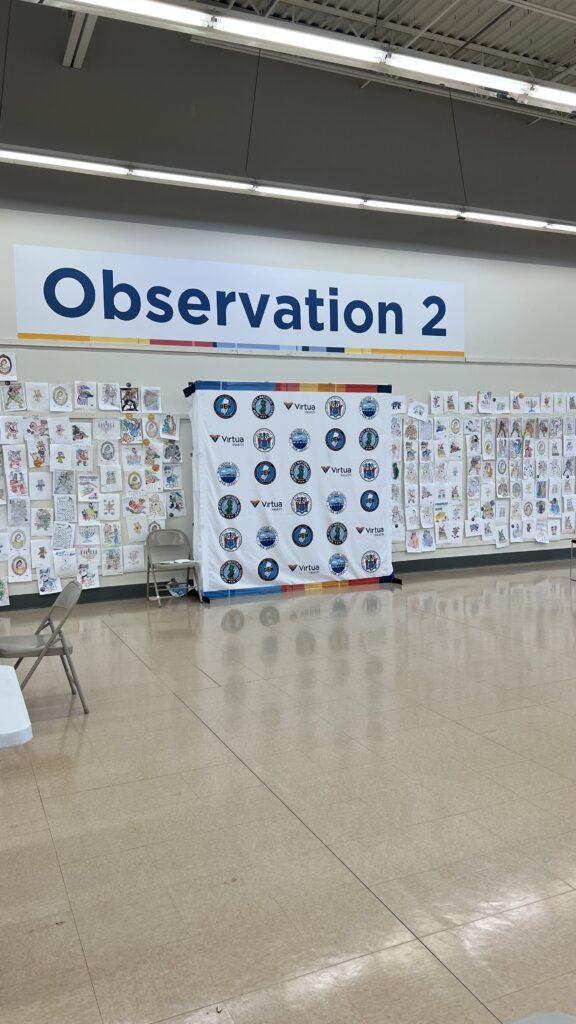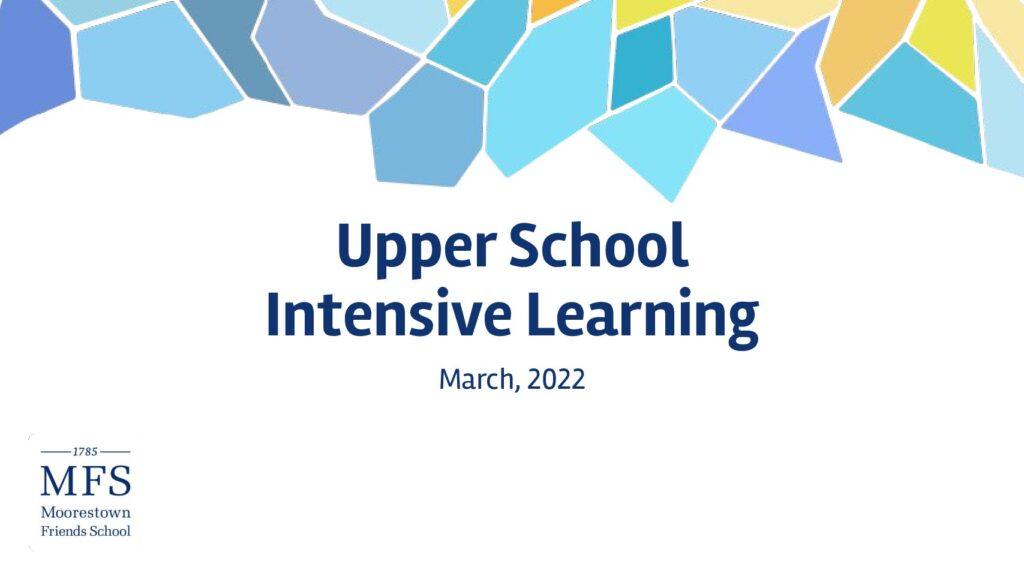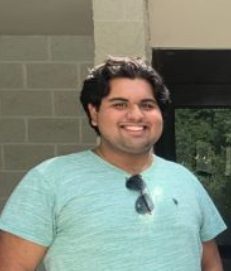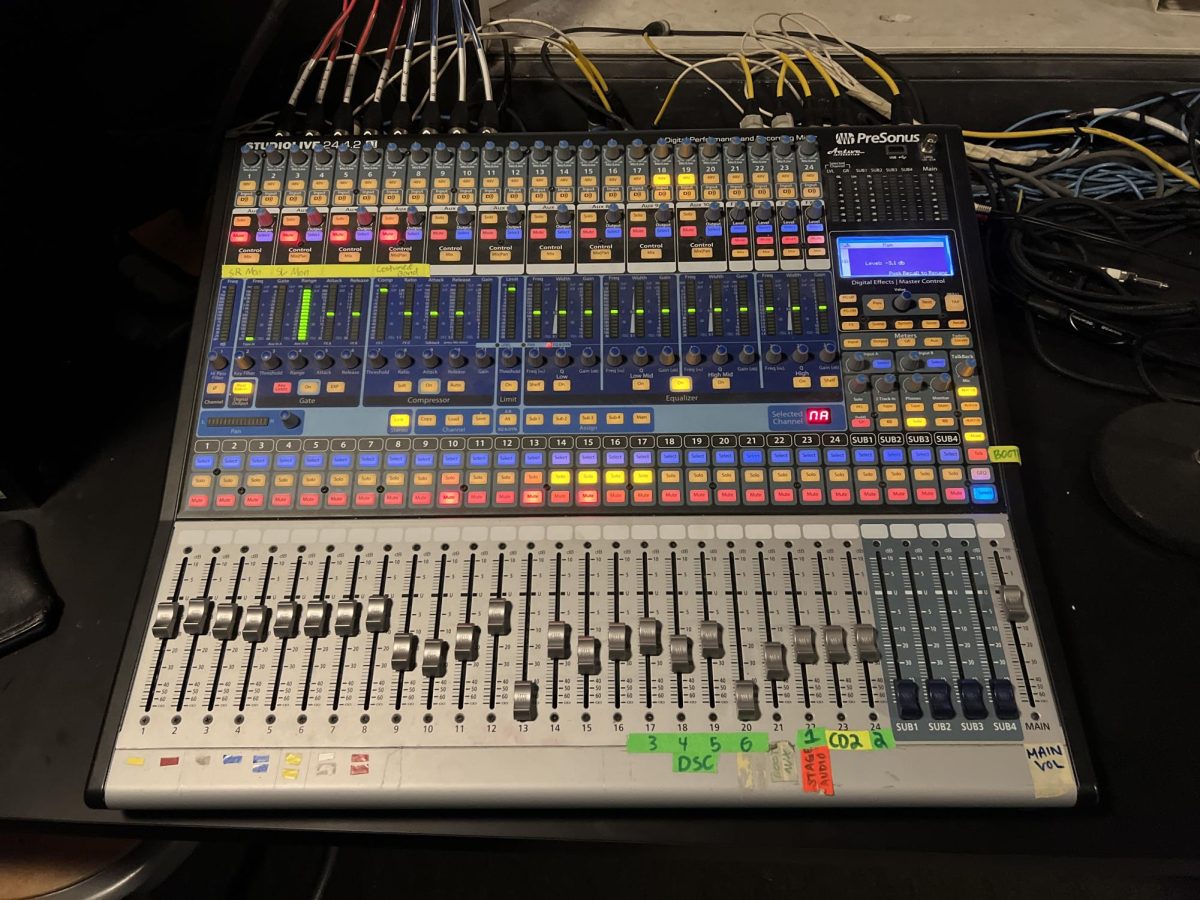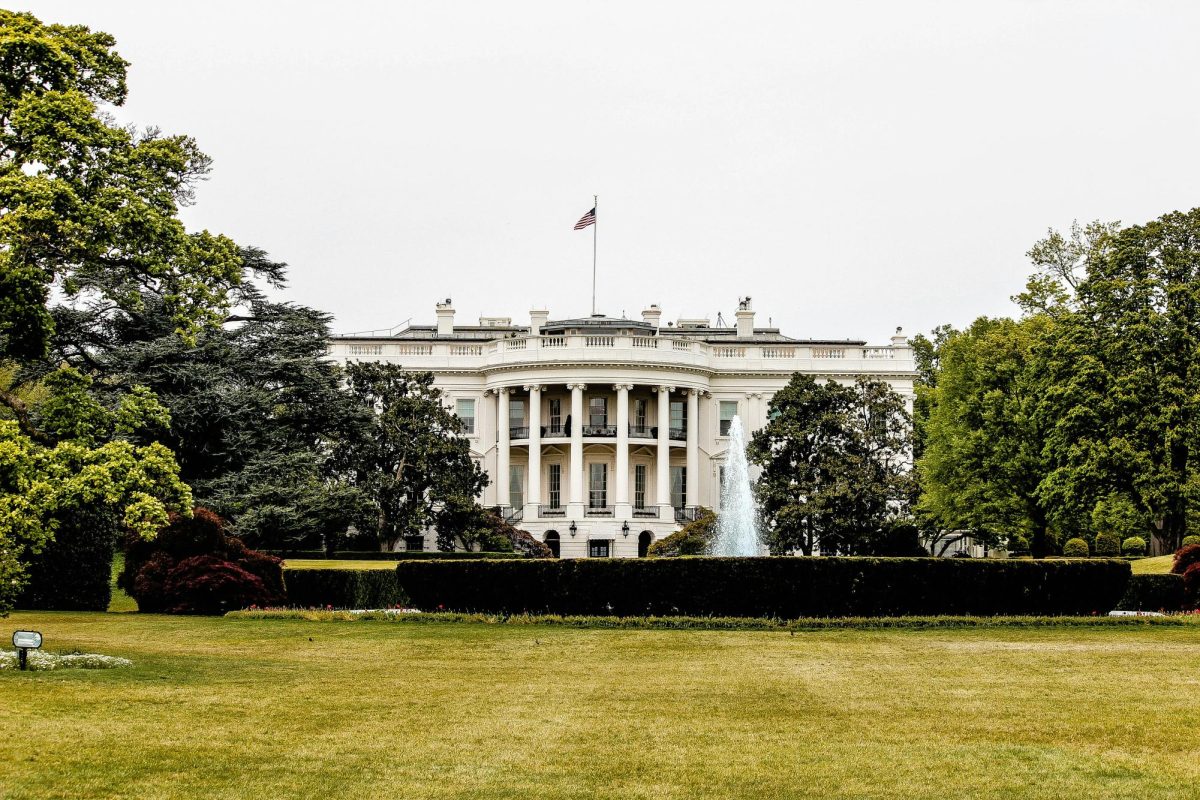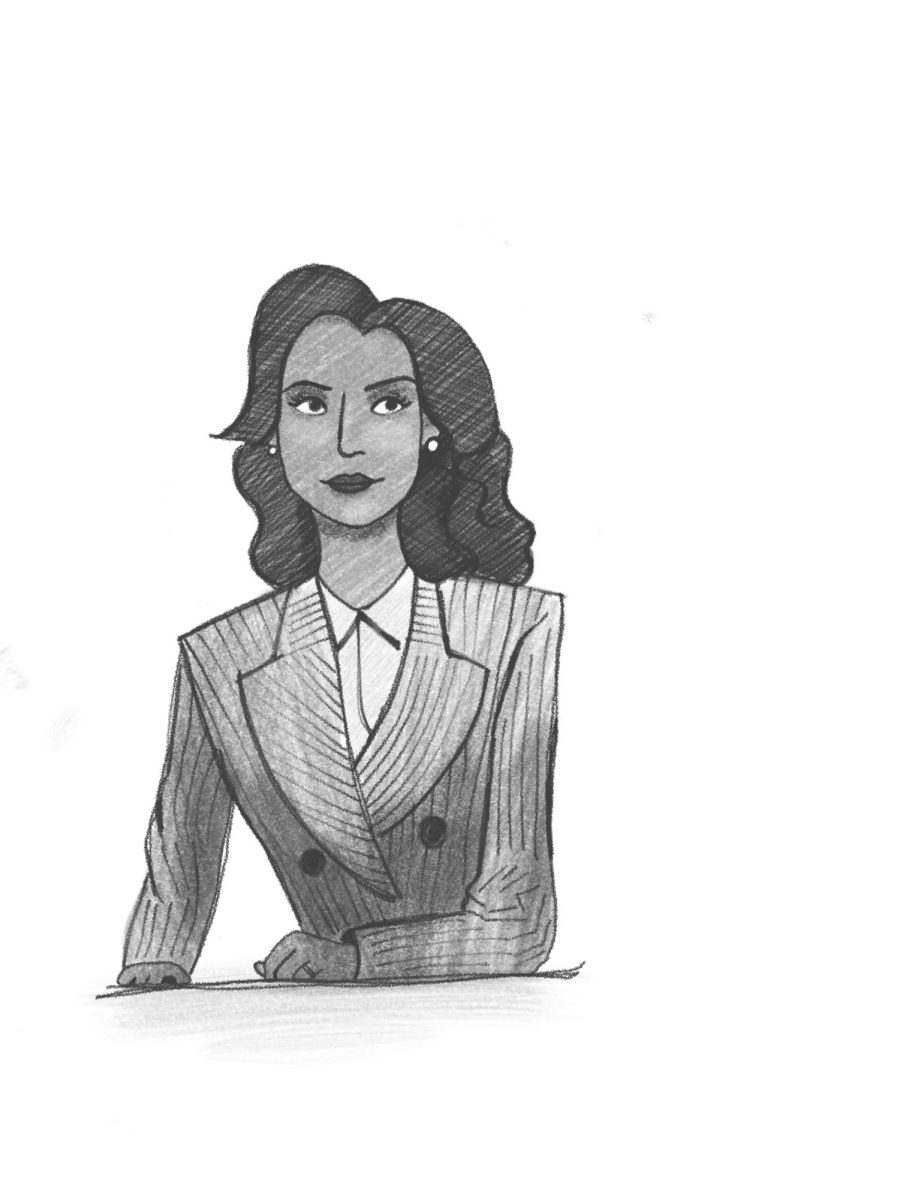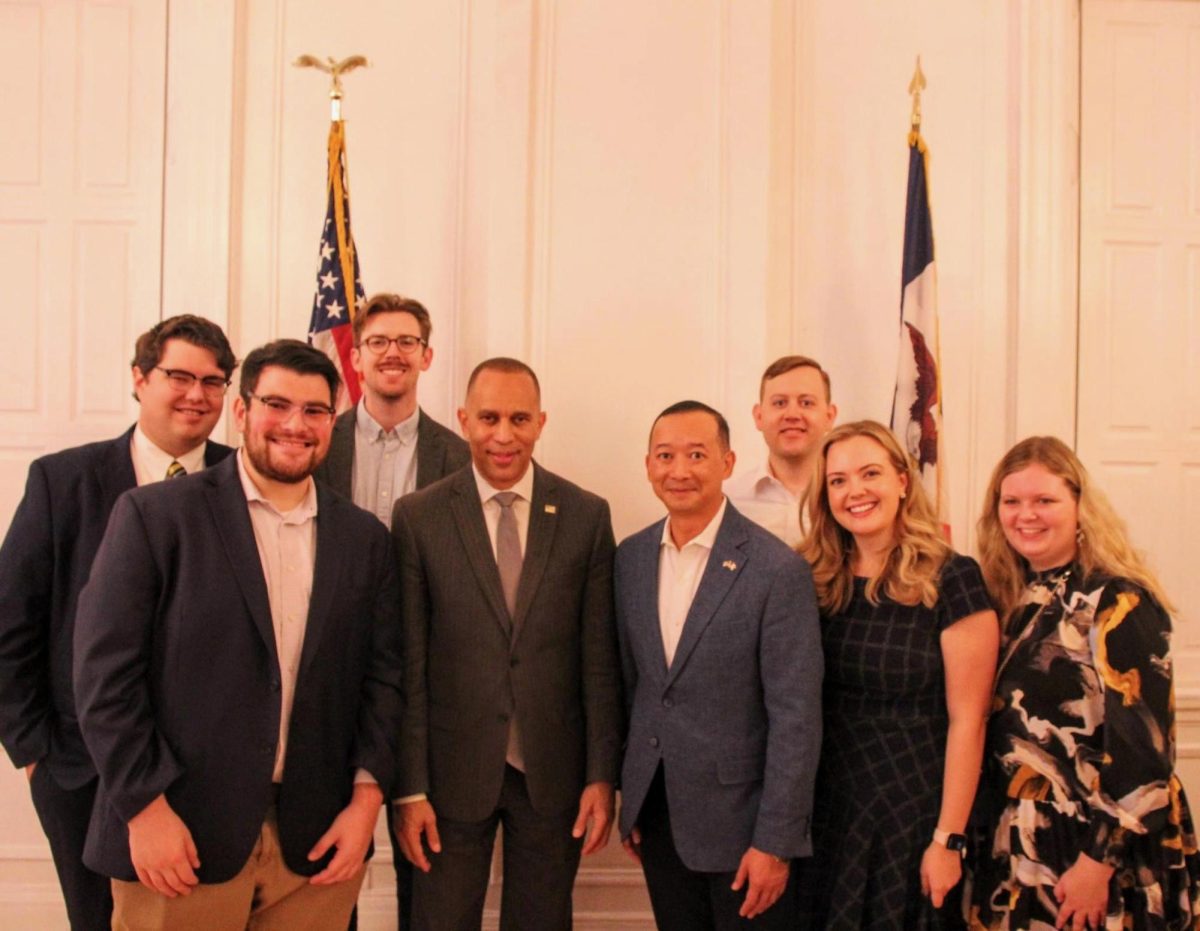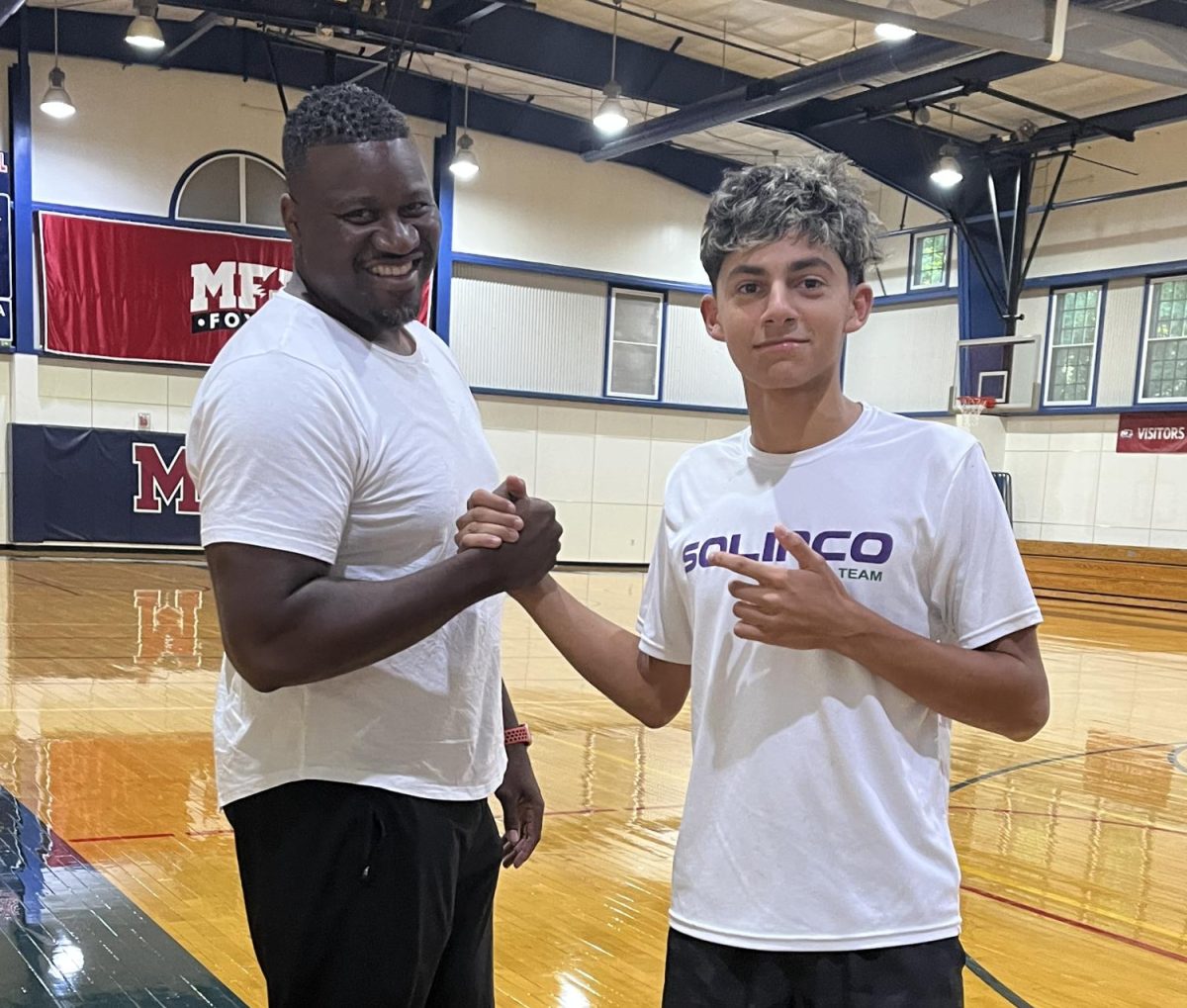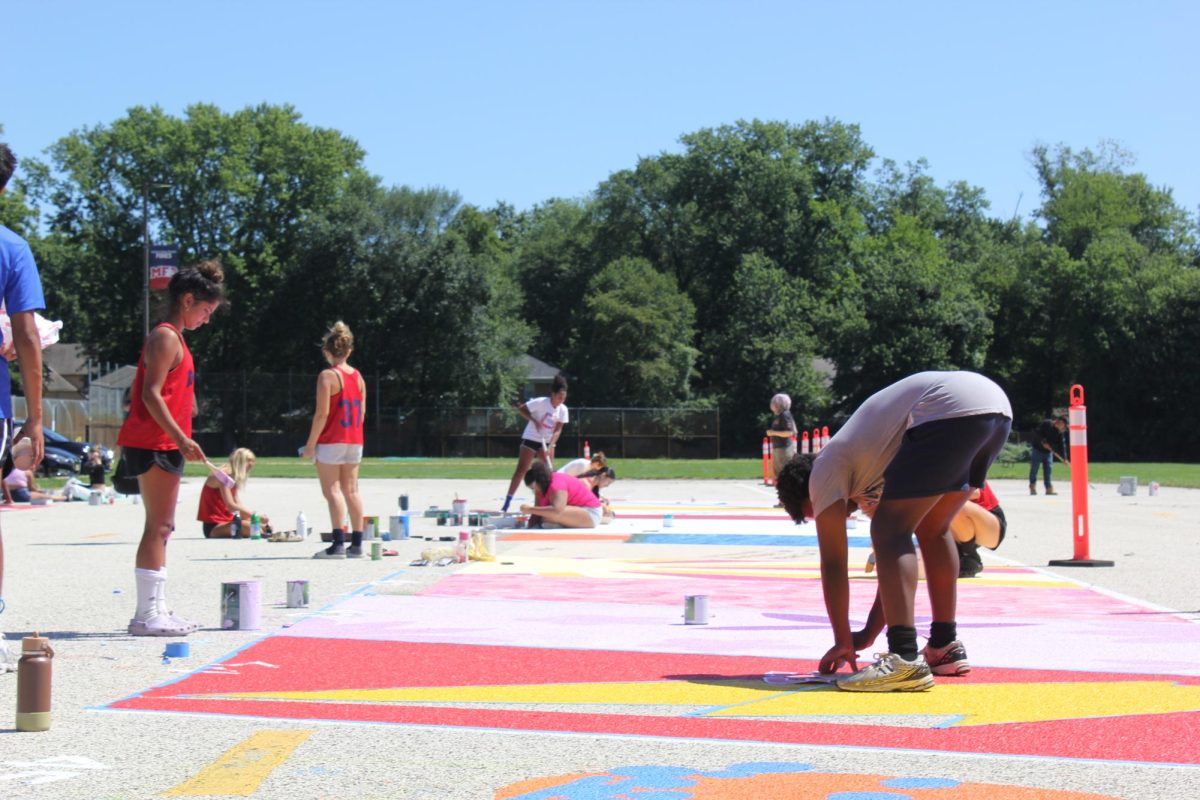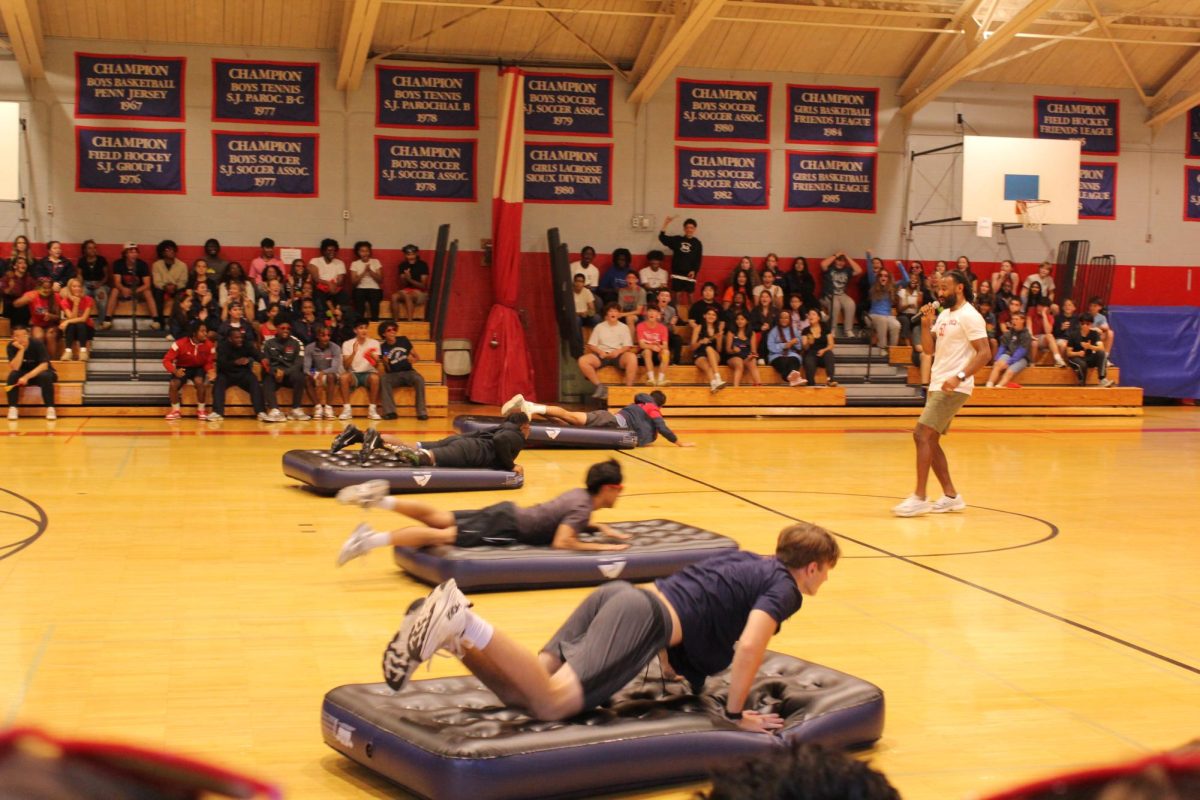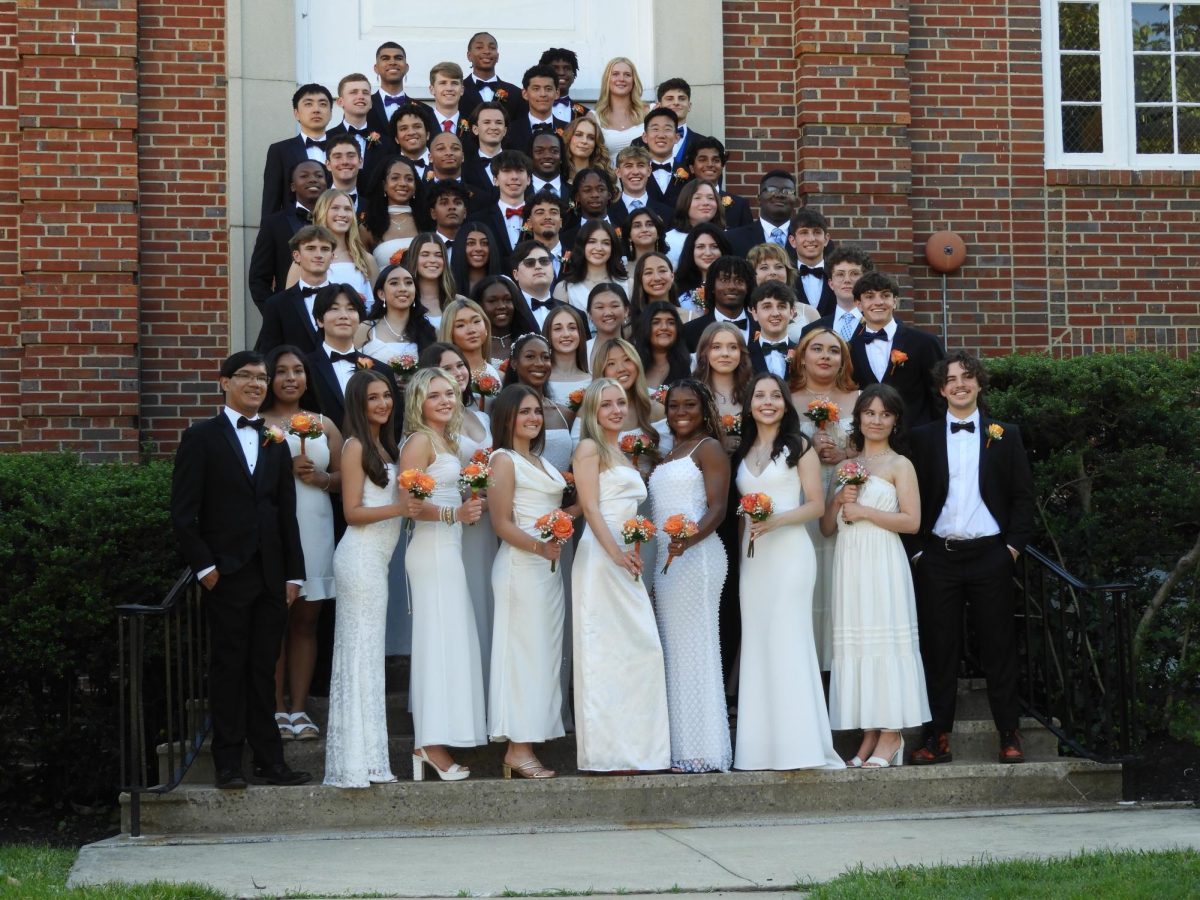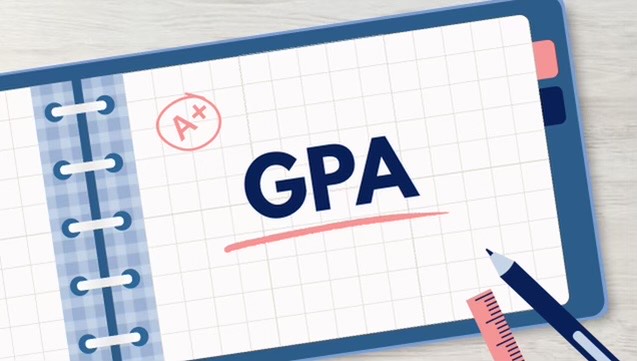
Back in 2017, then senior Anna Goula ’18 embarked on a journey to bring the first Quaker Model United Nations (UN) Conference to the MFS campus as part of her capstone project. According to MFS Model UN Faculty Advisor Clark Thomson, they “were prepared for it not to actually come together.” However, to their surprise, many local Quaker schools were interested in attending, leaving Goula with the challenge of planning the entire conference from scratch. Goula was up to the challenge and was able to successfully pull off the first conference hosted by MFS.
Fast forward to 2020, and MFS Model UN Secretaries-General Christine Chandran ’21 and Kayla Patel ’21 are posed with the same challenge, but with a slight twist. Organizing the conference is complex enough, but due to the ongoing COVID-19 pandemic, they were forced to find an alternative and safe way of hosting it. Over the course of the last six months, Chandran and Patel have organized the third, and first ever virtual version of the Quaker Model United Nations Conference (QMUNC).

“We started preparing for this conference in May/June. It actually took a lot of time. By late June, we understood that this conference was going to be virtual due to the pandemic. We then realized that we could expand throughout the U.S., and even the world,” said Chandran.
“We chose six topics and gathered six Model UN students to serve as chairs for the committees. We had them write background guides, while we worked on logistics, and we later edited them. I created a website to make communications easier with schools. We sent many emails, had many phone calls and meetings with different schools to explain to them how they could get involved,” Chandran further explained.
Over the summer, Chandran and Patel were also able to serve as teachers for the virtual MFS Summer Scholars Model UN Program, where they were able to test things out in a virtual environment.
As Chandran alluded to, she and Patel saw the virtual platform as an opportunity to expand QMUNC from just local Quaker schools to schools from all around the world. After some research, they were able to find some fellow Quaker schools located outside of the United States. Chandran and Patel got in touch with schools from Costa Rica and Lebanon, and the schools were thrilled to be involved in the conference.
Chandran and Patel were also able to set an all-time record through the use of the virtual platform, with over 100 delegates and participants signed up from MFS, Penn Charter, Sidwell Friends School, Abington Friends School, Germantown Friends School, George School, Westtown School, Monteverde Friends School, and Brummana High School.
Thomson said he believes that the ability to go international could be a long-term component of future conferences.
“In an obvious sense, [going international] means we are connected with schools far and wide and they are coming to our ‘show.’ That is both exciting and humbling. In addition, it is foundational. As we move forward in a non-Covid retrained Model UN universe, will conferences like ours include the virtual experience for students who cannot make it to the conference site? Will Model UN be reinvented as a result?” said Thomson.
In addition to the new international factor, Chandran and Patel were also able to book Megan Schmidt, a representative from the Quaker United Nations Office who leads the organization’s Peacebuilding Program, as the keynote speaker for the conference.
“This year, when Kayla and Christine began the process, Covid was not a concern. To watch them and all the chairs confront the change and see it as an opportunity not an impediment was truly astounding. Consider, virtual has allowed us to have international schools involved, to have a keynote from the actual UN, to have the conference carry over three days. It has been an amazing process to watch,” said Thomson.
While there are plenty of new aspects that a virtual conference has allowed for, the Secretaries-General have also made sure to maintain some of the aspects of the traditional, in-person conference. “We really wanted to emphasize the research and preparation part, as well as keeping the authenticity of having healthy debate. We tried to have interesting topics to create fun debate during the conference. We also wanted to create that excitement and fun competitive spirit during this conference that we would normally find in any other large conference,” said Chandran.
Chandran and Patel were also able to refer back to Goula’s original QMUNC back in 2017, since they both participated in it as freshmen.
“What makes QMUNC unique is how it incorporates the values of Quakerism into diplomacy and global thinking in Model UN. Since we were able to experience how a conference works in this way, we were able to fully understand and implement these qualities as we were bringing this conference to life,” said Chandran.
Even though the virtual conference is set up to be very exciting, Thomson said he recognizes that the loss of the in-person experience has made the preparation and energy a bit different this year, and sees the experience as “bittersweet.”
“The most difficult part has been the lack of an in-person conference to prepare for and get excited about,” said Thomson. “In previous years, we would be gearing up for the Rutgers conference right now. It is a unique experience to go to a conference for 4 days with 2,000 students from all over the country, to work in long committee sessions, to accomplish something. To celebrate the successes. To ride home as a team with new relationships forged. It will be missed in the ‘pause.’ Our novices will not have that wide-eyed moment sitting in a vast ballroom in Philadelphia with 3,500 students and faculty for opening ceremonies thinking, ‘Oh my, this is ‘real.’’ In our classes, we are on screens for the majority of our time. Though there is plenty of great interaction, the personal side seems muted.”
That being said, Thomson and the Secretaries-General reported being extremely excited about how their first-ever virtual conference will go. The conference will take place over Zoom, where they can utilize the ‘breakout room’ feature. Chandran explained, “There are six different committees, and the delegates will enter their Zoom room to debate. For the most part, Model UN will be similar in the structure and procedure but just modified so it can fit a virtual setting.” They hope that this format will carry out successfully throughout the year as long as they must remain virtual.
The topics for the conference this year are the Korean War, post-World War I reparations, black market organ trafficking, the Venezuelan humanitarian crisis, gender-based violence in refugee camps, and the 2015 Paris Climate Accords. Additionally, because it is a Quaker conference, each committee will still be based around one of the Quaker SPICES: simplicity, peace, integrity, community, equality, and stewardship
The conference kicks off at 5 p.m. Friday evening with keynote speaker Megan Schmidt, and will span across a three-day period from Friday, November 20 to Sunday, November 22.

